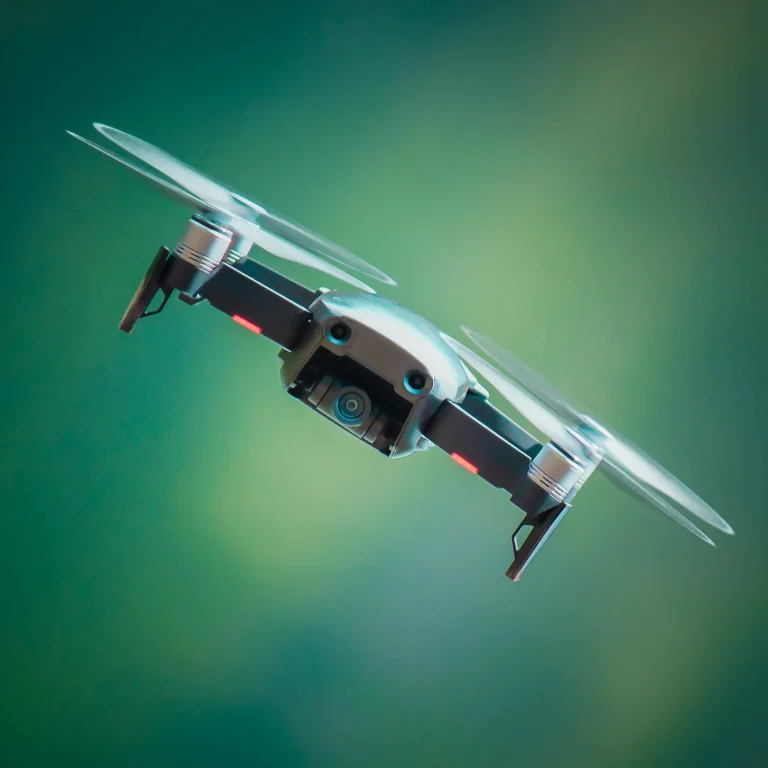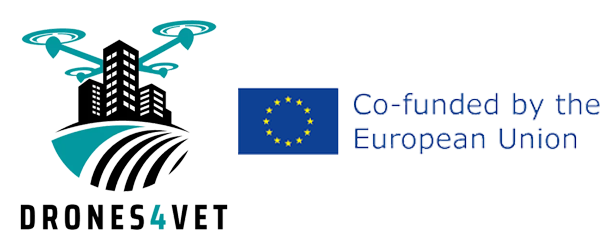Project
About

Drones4VET addresses an identified gap in the training offered within the construction-related activities. To date, the education and training offer has solely focused on the mastering of the traditional techniques, mainly based in the manual and on-site surveillance, inspection and assessment of civil works, buildings and constructions sites.
This approach to training has not in essence changed in the past decades. The advent of the new technologies, both from the point of view of the software/applications and the hardware/devices, has fundamentally altered the dynamics of the sector.
Among these new technologies, drones are revolutionising the way of working of many companies in the construction industry as they begin to opt for aerial supervision (for both building and civil works), topography, cartography, preparatory works or even early-detection of anomalies of infrastructures. Embracing of these new changes is very important for VET students who want to guarantee their current and future employability and develop a successful career. With regard to the current situation, the trend among companies is to carry out in-house training actions for the professionals and not outsource this task, mainly because the offer is very limited and, in many cases, not specifically tailored to their needs.
Therefore, there is a remarkable need for training in these technologies for vocational training students. Moreover, a new European regulation (2019/945 – 2019/947) on the subject entered into force at the beginning of 2021, introducing new rules and principles. Given that the regulation has been published recently, there is neither a personalized and up-to-date training offer throughout the EU nor a Vocational Training project with similar characteristics within the Erasmus programme
The Drones4VET initiative, funded by the Erasmus+ European Union Programme.
Detailed info
- Name of the project: Transnational VET training programme in the use of drones within construction-related activities.
- Project Acronym: Drones4VET.
- Start date: 01-01-2022. End date: 31-10-2024.
- Project Reference: 2021-1-ES01-KA220-VET-000033094.
- Eu Grant: 382.145,00 €.
- Programme: Erasmus+.
- Key Action: Partnerships for cooperation and exchanges of practices.
- Action Type: Cooperation partnerships in vocational education and training.

Primary
Direct beneficiaries students aged 18 to 50 years old

Secondary
Indirect beneficiaries Construction Training Centres, Construction industry and companies and the General Public
The project partnership strongly complements the sector needs, with the participation of five reputed training centres across five different EU countries and a private sector research partner, with strong experience in technological learning and the development of training offers adapted to the needs of the companies.
Together, these partners will collaborate and exchange their experience and expertise to develop targeting training modules focusing on transferring new competences and skills to better equip them for their integration into the labour market and to develop sustainable and successful professional careers in such a fast-changing environment as construction-related activities have become. In that framework, and according to the needs identified for the sector.
The Plan

- Drones4VET Training Programme to identified gap in the training offered within the construction-related activities.
- Handbook for educators will be produced covering technical and theoretical aspects for the running of the pilot course that will include recommendations and tools on “how to implement the different modules of the training programme”,
The results will be transfer to a wide range of society, trough multiplier events and communication activities. Also we will make all our communications and connections in a sustainable way.
Public documents
Pdf proposal, Link to the UE site where the info project is detailed and other documents.

Drones4VET is funded by the Erasmus+ Programme of the European Union. The views expressed in the working papers, deliverables and reports are those of the project consortium partners.
These views have not been adopted or approved by the Commission and should not be relied upon as a statement of the Commission’s or its services’ views. The European Commission does not guarantee the accuracy of the data included in the working papers and reports, nor does it accept responsibility for any use made thereof.
